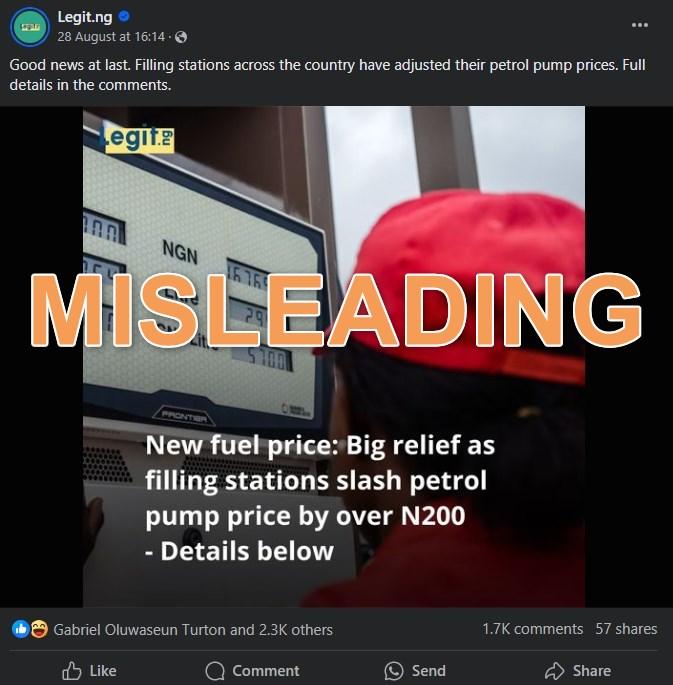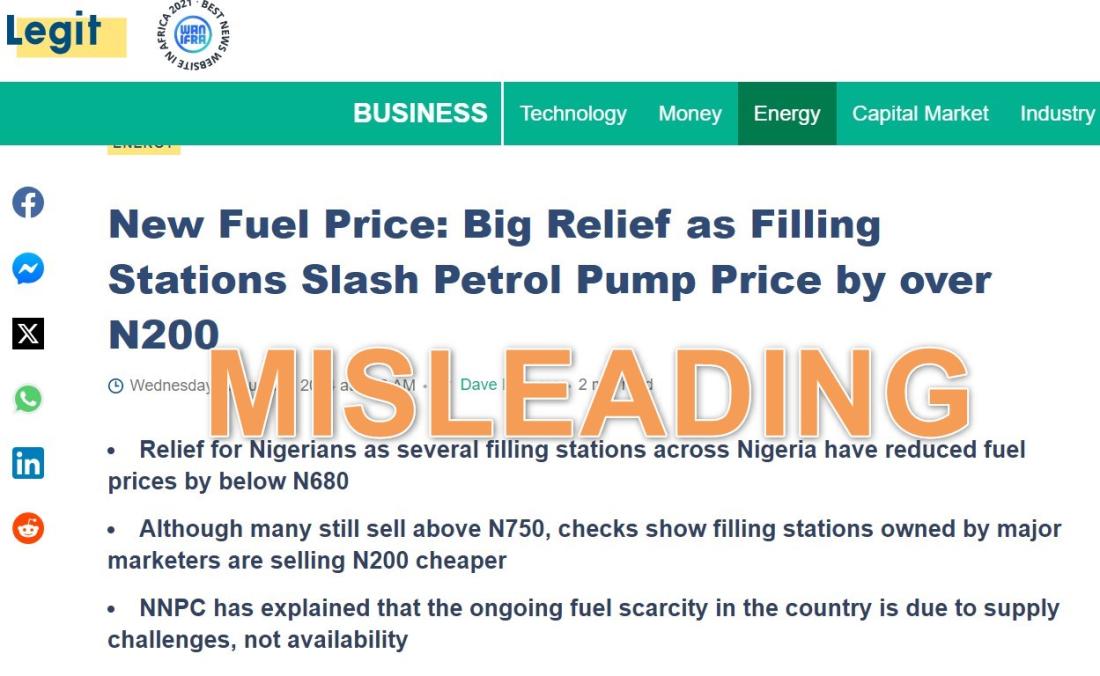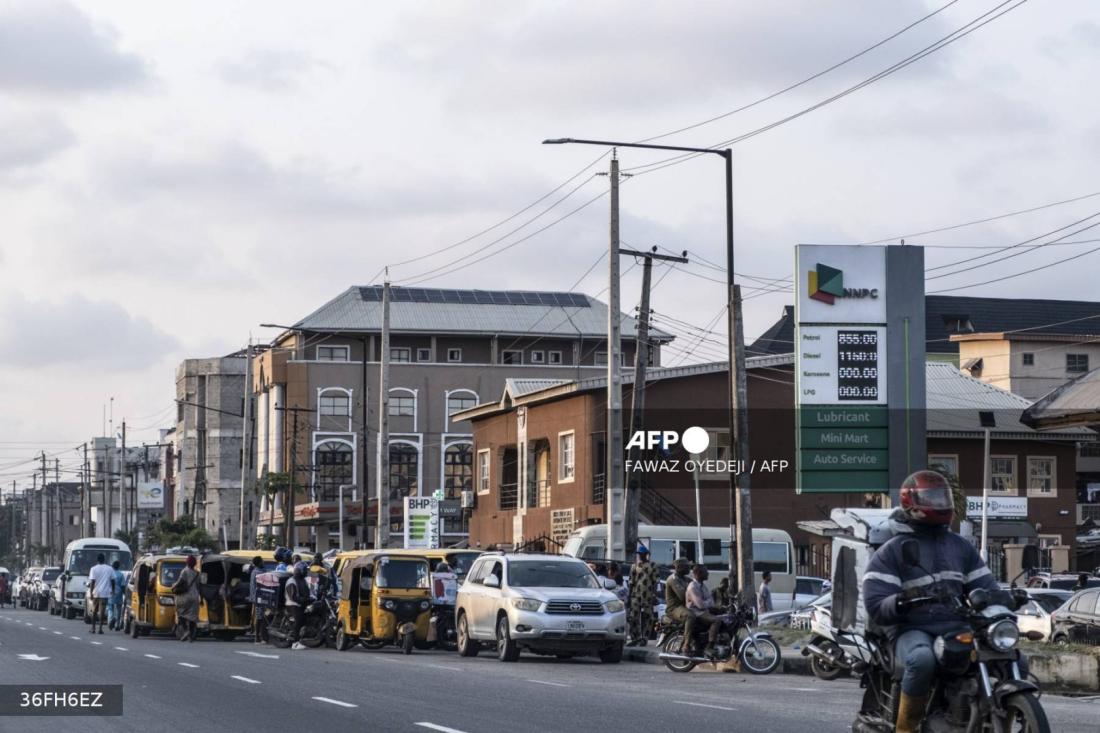
Posts mislead with claim about petrol prices falling across Nigeria
- This article is more than one year old.
- Published on September 11, 2024 at 16:16
- 3 min read
- By Oluseyi AWOJULUGBE, AFP Nigeria
“Good news at last. Filling stations across the country have adjusted their petrol pump prices. Full details in the comments,” reads the caption on a Facebook post dated August 28, 2024.
The text superimposed on the image in the post reads: “New fuel price: Big relief as filling stations slash petrol price by over N200 – Details below.”

Shared more than 50 times, the post has attracted 1,700 comments and was published by popular Nigerian blog Legit.Ng, which has 7.7 million followers on Facebook.
In the comments, dozens of users appeared to disbelieve the news, citing high prices at their local petrol stations.
“I just bought 940 per litre at Issele uku, Delta state,” wrote one person. Another said: “I just bought 930 per litre few minutes ago.”
The claim also appeared on Facebook here and here.
But the posts are misleading.
No nationwide slash
The accompanying Legit.ng article includes the same headline as the text superimposed on the post's image: "New fuel price: Big relief as filling stations slash petrol price by over N200"
The body of the article says that "filling stations of major oil marketers across the country are offering fuel to Nigerians for as low as N630 per litre."
"The price is over N200 cheaper compared to N800 to N900 per litre fuel has been sold at other filling stations since fuel scarcity started (sic)," it continues.
The article goes on to list prices spotted at several Lagos petrol stations run by major companies.
But there was no mention in the article of an official announcement about the cost of petrol in Nigeria coming down, nor did it state by how much each of the stations it canvassed had “slashed” their prices.

No more subsidy
Petrol historically has been subsidised by the Nigerian government. But President Bola Tinubu announced the end of the petrol subsidy at his inauguration ceremony in May 2023.
This resulted in an immediate increase in the base price of petrol per litre from 190 naira to 568 naira (archived here).
But fuel shortages have played havoc with prices, allowing black-market dealers to charge more than 900 naira for a litre -- about a third more than prevailing prices at filling stations owned by the Nigerian National Petroleum Corporation Limited (NNPCL) and private sellers (archived here).
Legit’s article did not explain the price differential and its headline gave the impression fuel costs had suddenly fallen.
Fuel up, not down
On September 4, 2024, fuel stations owned by the NNPCL adjusted their boards to reflect an increase in the base price of petrol to 855 naira (archived here).

AFP reported that private suppliers were already selling fuel at higher prices than the NNPC, as much as 1,200 naira per litre.
Government advisor Bayo Onanuga defended the decision to raise fuel prices as a way to help the NNPC, which he said was struggling to make its contribution to federal accounts (archived here).
He said on X that once the privately-owned Dangote refinery began producing fuel for the local market, Nigerians would experience relief.
Tinubu government did not lie about fuel subsidies
— Bayo Onanuga (@aonanuga1956) September 3, 2024
I have read a series of articles attacking the Federal Government for not telling the truth about fuel subsidy payments, following NNPC Limited's admittance it was owing suppliers some $6 billion.
Some of the stories have… pic.twitter.com/BrIjElDw2t
"There are no easy choices," Onanuga said. "Something must be done to make NNPC survive, keep the engines of government running and petrol flowing."
Copyright © AFP 2017-2026. Any commercial use of this content requires a subscription. Click here to find out more.
Is there content that you would like AFP to fact-check? Get in touch.
Contact us
